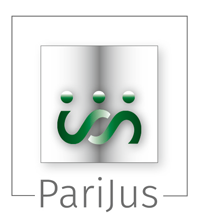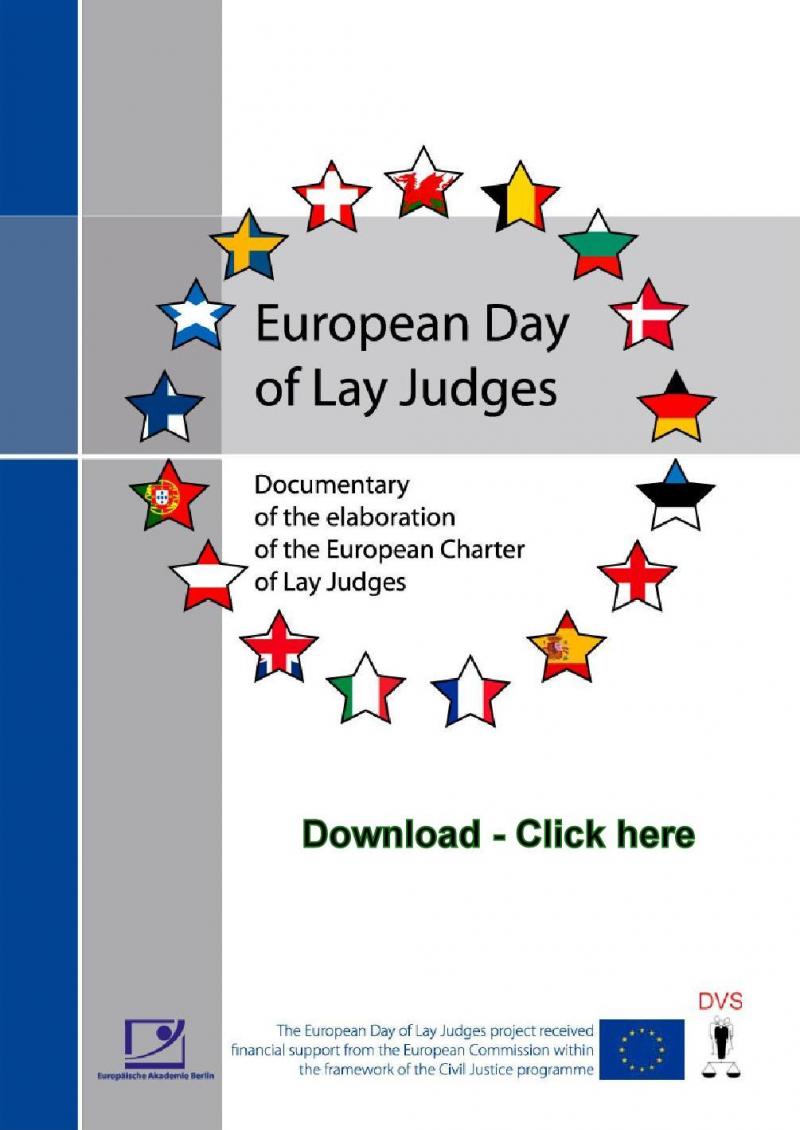2004 Turin: Mediterranean Initiative
In October 2004 a conference on the judiciary of peace in Europe achieved the aim of comparing the experiences of the Italian, French and Spanish systems of justices of the peace by identifying their common features, the legal differences and, through these elements, enunciating some essential principles of the justice of peace in Europe.
2007 Berlin: The German Initiative
Independent of the Mediterranean Initiative the Federal Association of Lay and Honorary Judges in Germany pursued the same objective but followed a different path. A „European Day of Lay Judges” was to be initiated in order to secure more attention and recognition for lay and honorary judges. For this purpose, the association contacted the European Parliament, the embassies of all European states in Germany and finally the European Academy Berlin.
2009 Helsinki: First meeting of the associations
While the German Association and the European Academy Berlin sought support at a political level, the Finnish Association invited the representatives of the associations of honorary and lay judges from England and Wales, Scotland, Germany, Austria, Malta, Sweden and Finland to Helsinki in October 2009. The joint request quickly became clear: expansion of the presence and influence of honorary judges’ associations in Europe in order to preserve this democratic legacy in Europe; participation of honorary judges’ associations in the political formulation in Europe; improving the reputation of honorary judges in general. Because of the former initiative the German Federal Association of Lay and Honorary Judges was asked by the conference to co-ordinate a European initiative for lay judges.
2012 Brussels: European Charter of Lay Judges & European Day of Lay Judges
From 2010 to 2012 the associations of England and Wales, Finland, Germany as well as UEMC developed the idea of elaborating the European Charter and inaugurating the European Day of Lay Judges. These activities were financially supported by the European Commission as well as the German Federal Ministry of Justice and had been administrated by the European Academy Berlin. After two preparing conferences in Berlin (2010) and London (2011) the „European Day of Lay Judges” was established on 11 May 2012 in order to consolidate the necessity of citizens’ participation in jurisdiction. The participating associations expressed their conviction in a „European Charter of Lay Judges”. All of them have the common conviction that the participation of the people in jurisdiction is „a fundamental principle in any democratic society” (Charter). The lay judge associations defined minimum standards in the Charter, which jurisdiction in the European states have to conform with regard to the participation of lay judges. This includes not only the guarantee of equitable participation in the negotiations with the career judges but also the ban on discriminations in profession. The Charter describes participation of representatives from the people in the jurisdiction as an essential element of democracy. The first „European Day of Lay Judges” was held in May 2013 in Belfast.
Further information:
European Day of Lay Judges. Documentary of the elaboration of the European Charter of Lay Judges. Berlin: European Academy Berlin, 2012. 44 pp.
ENALJ Member organisations can order the printed brochure free of charge from PariJus - Bitte Javascript aktivieren!Bitte Javascript aktivieren!Bitte Javascript aktivieren!
2012 Berlin: European Network of Associations of Lay Judges
A workshop in August 2012 in Berlin was the final element in the project „European Day of Lay Judges“, which received funding from the European Commission (Programme Civil Justice). Delegates from eight lay judge associations in European countries discussed how cooperation should be continued. The European Network of Associations of Lay Judges (ENALJ) was founded to encompass associations of lay and honorary judges and arbitrators in those European countries which signed the European Charter of Lay Judges. The new association shall be governed by the provisions of German law relating to non-profit making associations.

